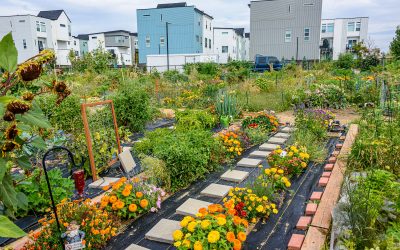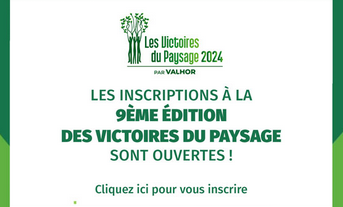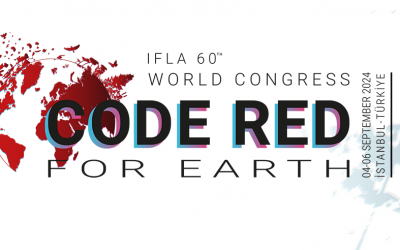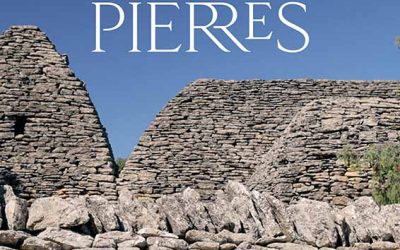How can cities become more integrative, and is there a way for them to rediscover their living base? Their living sky? These are some of the questions covered by this break-out session, regarding various experiences, approaches and visions for the city of tomorrow.
Through a landscape understanding and adaptation, we would like to adapt tomorrow’s urban and rural territories to climate challenges, to meet the societal needs of a territory more in touch with its longstanding roots – roots is here understood as our cultural embedded society link to a context but also roots in a literally way find again our fertile earth in towns, look for alternative more sustainable managements , propose other layers of projects within our tows ( urban and rural) to augment the better living.
We have lost sight of a crucial aspect: the living base at the origin of the city. Rediscovering it for the health and comfort of living beings (inhabitants in the broadest sense) could be a solution for anticipating the effects of climate change and ensuring everyone’s well-being. How can we design this? We still look for better air and moist in our towns, how can we anticipate or restore urban planning to design this immaterial aspect of our towns? We need to plan this for the future generations thanks to co-design projects with locals that know well their environment together with designer and expects.
Landscape architectures lies at the meeting point of several disciplines. Projects for public spaces need to be approached in a multifaceted, democratic way with the inhabitants to encourage their acceptance of spaces where they are the future players. The project owner’s role is important in terms of long-term involvement and the political courage involved, while the designer’s task is to give meaning to projects on a variety of geographical scales. Landscapes are the embodiment of a method or tool established to build differently and explore architecture in a new light. A landscape project does not stop at the creation of parks and gardens: a distinctly 19th century concept. Today, it can be the model for future cities that factor in climate change and social inclusion. This is how landscape architecture is taught in Europe and elsewhere.
We propose to open the debate after a presentation of three case studies that explores possible futures:
Use the chat on zoom, at the end of the session we can provide a draft of a manifest
12:00-12:10
Karin Helms President of IFLA EUROPE International Federation of Landscape Architects, Region Europe
Presentation of the evolution of a profession, contributors to propose proactive projects which anticipate future changes, transformations, help to make acceptance of disappearances and integrations of new modes to our landscapes of our future European cultural landscape – specificities and identity of our cultural and every day landscapes. (Reference to the definition of the profession IFLA definition 2020 and The European Landscape convention 2000)
12:10 -12:25(confirmed)
Urszula Forczec-Brataniec Archi &Landscape Architect former general secretary of IFLA EUROPE, associate prof.
Presentation of the professions mode of acting through Europe in line with sustainable design, planning and management projects. Extract from the exhibit: Landscape Architecture as a common ground 2018-2019.
12:25 Karin Helms will present the three case studies and debate mode: “waterfall chat mode”: Send please a chat each time you hear from the speakers the wordings linked to the New European Bauhaus initiative’s aim: “Beautiful- Sustainable- Together” please. Daniela Micanovic-Franckx IFLA EUROPE’s Executive Secretary will moderate our Chats.
12:30- 12:45 (Confirmed)
Case study 1 The edges of Girona: 10min + 5 reactions. Presentation: Marti Franch Landscape Architect, Office EMF- Spain
What if the neglected and forgotten past farming areas around the town became the reservoirs for the living- living ecology and Humans? Role of the designer and inhabitants, role of the municipalities in this other mode of planning and managing the landscape. Experience of a self-initiated projects by Marti Franch Landscape Architect
12:45-13:00 (not Confirmed)
Case study 2- City of Strasbourg 10min + 5 reactions Presentation Prof. Henri Bava, President of the French Federation of Landscape Architect FFP – Director Office Agence Ter. France
A Port transformation where the large geography is the prerequisite for the new urban through an understanding of its past soil richness: flood, industrial material… ground as generator of the urban; reference to the concept of Urban planning of living environments.
13:00-13:15 (confirmed)
Case study 3 – Infinity of sky and intimacy of air. 10min + 5 reactions. Presentation: Indra Purs Landscape Architect, Researcher, LAAA. Latvia.
Life beyond buildings is spatially open to atmospheric impermanence – diurnal, weather and seasonal flux – thus rich of stimulus and experiences to the human perception, diversity of ambiences, aesthetic and material qualities. Climatic and microclimatic characteristics of cities’ identity. The pandemics highlighted value of air all over the world. How to plan, design and manage future urban atmospheres both as microclimates and as ambiences?
13:15-13:30: with the audience –Manifest our vision!
Through a landscape understanding of our metropolis, towns and villages which project could we propose to test and activate our ideas: we are looking for a vision– for a manifesto that can highlight your experiences and good practices! Please!
The break-out session is aimed at all public, designers, elected officials … we would like to open the debate to all those that are inspired by our public and common ground
Moderator: Karin Helms
Report the debate: Harin helms ( Indra Purs, in case need of support)
Technical support Daniela Micanovic-Franckx IFLA EUROPE’s Executive Secretary will moderate our Chats.
REGISTRATION
Conférence en ligne



